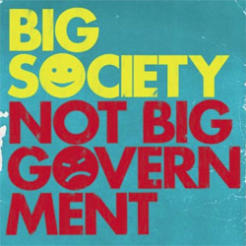The Big Society agenda has spawned many new successful community initiatives, but it has failed to involve the voluntary sector in public service reform, an independent audit warns.
Three years on from the formation of the coalition government and the launch of its flagship policy the Big Society, an audit released today by think tank Civil Exchange judges that the policy has had mixed success and finds “the Big Society isn’t going away, though some have declared it dead”.
The Big Society Audit analyses the success of three key areas of the Big Society policy: community empowerment, opening up public service and social action. Community empowerment, the audit judges, is the area where the Big Society has scored most highly over the last year.
It finds that communities are successfully taking vital assets and services locally, that the amount of publicly available information has increased, and there are more elected officials.
Charities left out in the cold
However, while the Big Society appears to be taking off at a local level, its involvement on a more national scale, in public services, has been largely negative, says the report.
The report warns that, like previous administrations, the government turns to the private sector for the reform of public services, while the voluntary sector, which commentators originally thought would be at the heart of the Big Society, has been largely left out in the cold.
It finds that public service outsourcing is dominated by large private sector companies and that many cuts in state funding have fallen on charities.
It warns that turning to the private sector for public service delivery looks increasingly out of date when the large corporate sector has come under fire, for example through banking scandals. It suggests that the public would be surprised to learn that the delivery of public services is concentrated in so few large companies. And it concludes that people are increasingly concerned about the human impact of public contracts that focus on efficiency over service – for example, the growth in the use of 15-minute home care visits.
Elsewhere, the report finds that progress in social action is mixed. It says sector studies finds levels of volunteering are increasing, but also warns that compulsory volunteering in welfare programmes is controversial.
In contrast, giving has fallen, the report says, suggesting it is linked to the wider economy.
Big Society class divide
Overall, the report says that the Big Society should lead to a better and more united society, but suggests this is not happening as levels of trust have fallen in the UK between 2010/11 and 2012/13.
It suggests that against each Big Society goal there is a significant class divide. It says the Big Society is healthiest in affluent and rural communities than in urban and poor ones, and that there is no sign of this gap closing. It also warns that disabled people have been badly affected by changes to public services and that the young have become worryingly disengaged politically.
The audit makes a series of recommendations to improve the success of the Big Society policy including:
- Development of a new model for delivering public services
- More investment in early intervention
- Steps to increase the understanding of the potential of the voluntary community sector
- Increased investment in building the social infrastructure of disadvantaged and urban communities.










